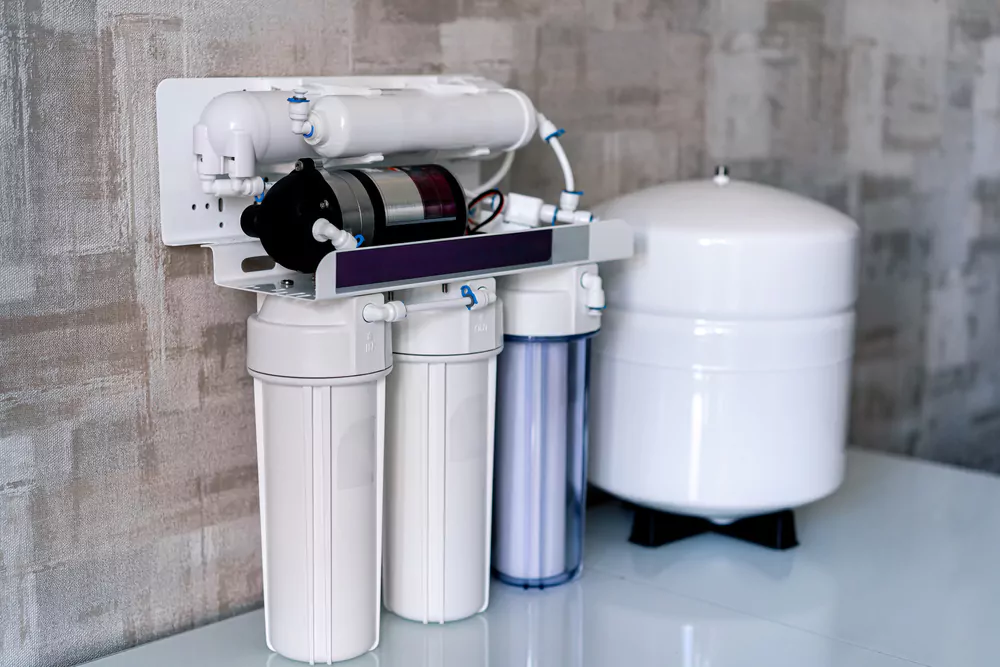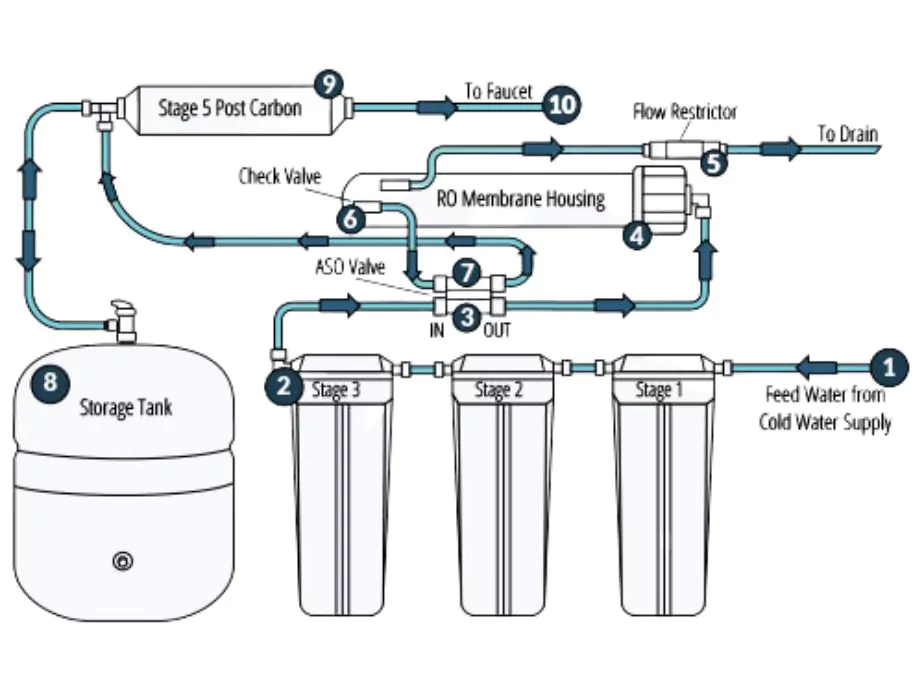What is RO Water Purifier and How Does it Work?

Access to clean and safe drinking water is crucial for maintaining good health as the quality of water we consume directly affects our well-being. With increasing water pollution and contamination, using a water purifier has become necessary. The RO (Reverse Osmosis) water purifier technology has gained popularity due to its ability to provide clean and safe drinking water. In this blog post, we will explore what is RO water purifier, the science behind its technology, the advantages it offers, and the factors to consider when purchasing an RO system. As water is a basic necessity for human beings, it is essential to ensure that the water we consume is free from harmful contaminants.
While various types of water purification systems are available, the RO water purifier stands out for its effectiveness. Therefore, we will delve into the workings of RO water purifiers, their benefits, and how to choose the right one for your home or office.
1 What is RO Water Purifier?
An RO (Reverse Osmosis) water purifier is a water filtration system that uses a semipermeable membrane to remove impurities, contaminants, and dissolved salts from water. This process works by forcing water through a membrane with microscopic pores, allowing only water molecules to pass through while blocking larger particles like bacteria, viruses, and dissolved solids.
The technology effectively removes harmful substances from water, providing clean and safe drinking water. The reverse osmosis process filters out dissolved salts, impurities, bacteria, viruses, and other contaminants, leaving behind purified water. Overall, the RO water purifier technology is an effective way to ensure that the water we consume is free from harmful impurities and contaminants.
2 Components of an RO Water Purifier

The reverse osmosis process consists of several stages that work together to remove contaminants from water. These stages include:
- Pre-filtration: This stage involves the use of sediment filters or activated carbon filters to remove larger impurities like sand, silt, and chlorine, which can clog or damage the RO membrane. Pre-filtration also helps in improving the taste and odour of water.
- RO Membrane: The heart of the RO water purifier, the semipermeable membrane, filters out contaminants, including bacteria, viruses, and dissolved salts. The membrane has pores as small as 0.0001 microns, ensuring that only water molecules can pass through.
- Post-filtration: After the water passes through the RO membrane, it may still contain some dissolved gases and trace amounts of contaminants. This stage uses a post-carbon filter or UV lamp to eliminate any remaining impurities and improve the water’s taste.
- Storage Tank: The purified water is collected in a storage tank, which can vary in capacity depending on the purifier model. The storage tank ensures that you have access to clean drinking water at all times.
- Faucet: The purified water is dispensed through a dedicated faucet, separate from your regular tap water.
3 Advantages of RO Water Purifiers
There are several advantages to using an RO water purifier, including:
- Effective contaminant removal: RO water purifiers are capable of removing up to 99% of dissolved salts, impurities, bacteria, viruses, and other harmful substances from water, ensuring clean and safe drinking water.
- Improved taste and odour: The filtration process not only removes contaminants but also eliminates unpleasant taste and odour, resulting in water that is more pleasant to drink.
- Low maintenance: RO water purifiers are generally low maintenance, with the primary requirement being the replacement of filters and membranes according to the manufacturer’s recommendations.
- Eco-friendly: By using an RO water purifier at home, you can reduce the need for single-use plastic water bottles, thus helping to reduce plastic waste and environmental pollution.
4 Factors to Consider When Purchasing an RO Water Purifier
When considering the purchase of an RO water purifier, it is essential to keep the following factors in mind:
- Water quality: The effectiveness of an RO water purifier depends on the quality of the water it is treating. If you live in an area with high levels of contamination or water hardness, you may need a more advanced RO system with additional features such as UV disinfection or a mineral cartridge.
- Daily water consumption: Consider the amount of water your household consumes daily. Choose an RO water purifier with a suitable storage capacity and flow rate to ensure that you have a sufficient supply of purified water at all times.
- Space availability: RO water purifiers come in various sizes and configurations. Make sure to choose a system that fits the available space in your home.
Filter replacement and maintenance: The filters and membranes in an RO water purifier require regular replacement to ensure optimal performance. Check the manufacturer’s guidelines for filter replacement intervals and factor in the ongoing cost of filter replacements when choosing an RO system. - Certification and warranty: Look for RO water purifiers that have been certified by reputable organisations such as NSF International or the Water Quality Association (WQA) to ensure that the system meets industry standards for performance and safety. Additionally, consider the warranty offered by the manufacturer for peace of mind.
5 Wrapping Up
To sum up, an RO water purifier is a highly effective water filtration system that uses reverse osmosis technology to remove contaminants from water. This technology ensures clean and safe drinking water by effectively removing dissolved salts, impurities, bacteria, viruses, and other harmful substances. With numerous advantages, such as improved taste and odour, low maintenance, and environmental friendliness, RO water purifiers is a popular choice for households seeking a reliable solution for clean drinking water.
When considering the purchase of an RO water purifier, it is essential to evaluate factors such as water quality, daily water consumption, space availability, filter replacement and maintenance, and certification and warranty to ensure that you choose a system that best meets your needs. By taking the time to understand the technology and consider these factors, you can make an informed decision and invest in the best RO water purifier that will provide you and your family with clean and safe drinking water for years to come.
Community Q&A
About This Article
This article has been viewed 498 times.



